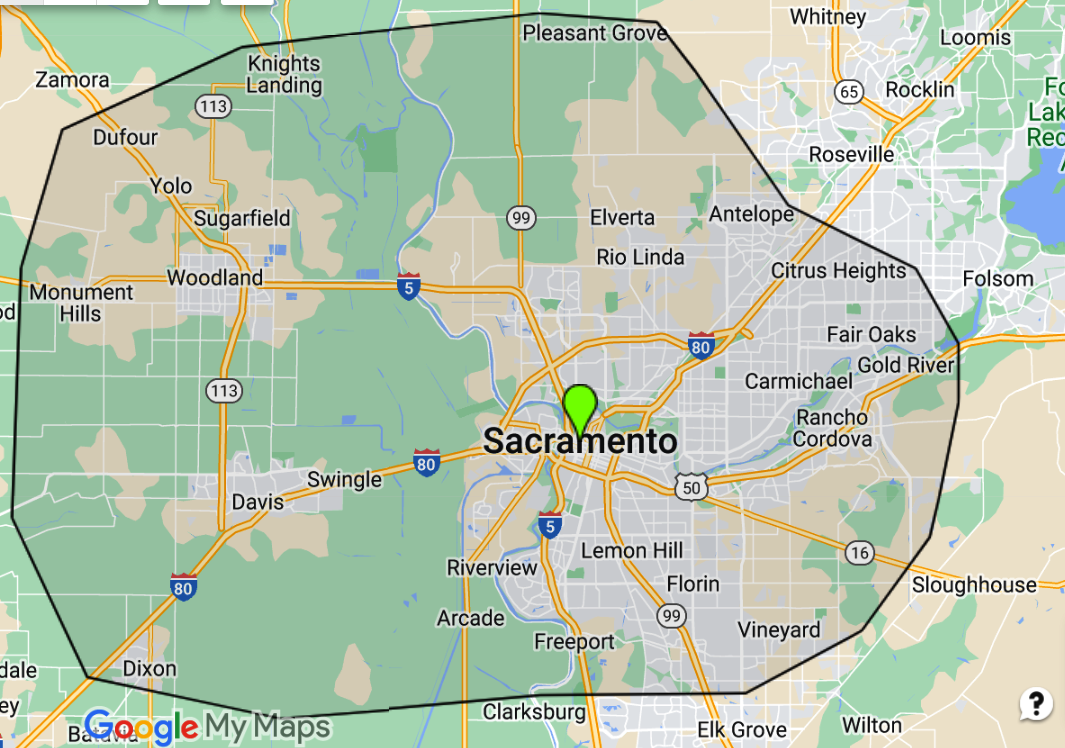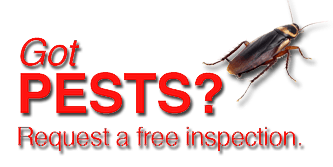
Sacramento - 916-542-6384
Flea & Tick Pest Control
$49 Initial Pest Service Deal *
- Green & Natural Pest Control Experts
- 100% Satisfaction Guarantee
Fully Trained, Licensed, &
Insured Technicians
Sacramento 916-542-6384
(* $49 pest control service deal is for routine pest control services, additional fees may apply)
Flea and Tick Control

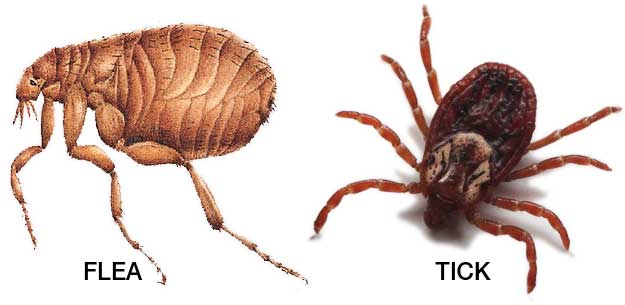
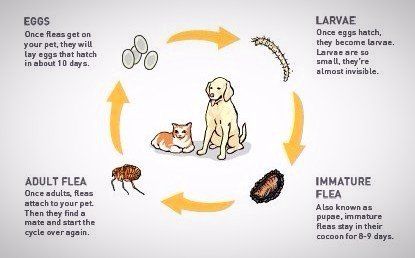

Fleas & Ticks
Your pet may be a member of your family, but sometimes it's easy for them to invite an unwelcomed guest to take up residence in your carpets, couches, and corners, unintentionally causing a big household problem.
Getting Rid of Fleas and Ticks:
Once you've established that your pet is infested with fleas or ticks, time is of the essence. But be sure to remain calm and take things one step at a time. First, treat your pet; consult with your veterinarian to find the best treatment option. Secondly, you will need to thoroughly clean and treat your home - inside and out - especially those areas where your pet spends a lot of time. Flea and tick infestations can be difficult to eliminate, so it is a good idea to call your experienced professionally trained pest control experts in order to rid you and your home of fleas and ticks.

- Green & Natural Pest Control Experts
- 100% Satisfaction Guarantee

- When will my regular service be done?
Official Pest Prevention will give you a reminder call the day before we are scheduled to service your home. Although it is not necessary for customers to be home during service, the regular service day can be changed by calling our office and making new arrangements.
- Do we have to be home when the technician arrives?
No, in fact, the majority of our customers receive service while they are at work or away from home. As long as the exterior is accessible (gates unlocked, dogs tied or removed) service can be performed in a customer's absence.
- Why do you have to come back thirty days after the initial treatment is performed?
Our initial service will control most adult pests, however we return to take care of those that escaped the first treatment and to prevent the emergence of pests hatching from protective egg sacks.
- What if I want service performed differently at my home?
Official Pest Prevention is happy to change the service routine at your request. By phone our staff can add special instructions to your account that will direct your service technician and ensure your service is done as you like.
- What do you do when it's raining?Describe the item or answer the question so that site visitors who are interested get more information. You can emphasize this text with bullets, italics or bold, and add links.
- What do I do if I'm not satisfied with my pest control service?
Communications is the key ' If we don't hear from you, we assume that service is being performed to your satisfaction. If at any time you are unhappy with service results, please call and explain the problem so we can resolve the issue and serve you better in the future.
Our residential services are designed to cater to the specific needs of your home.
Interior Service
Our interior services are performed in a way that places products in areas where pests nest and traffic. By treating the cracks and crevices throughout your home, we will ensure that pests interact with our products, not you and your family.
Exterior Service
Our exterior service is designed to target areas outside of your home where pests are most likely to nest. Keeping an active product on the exterior of your home will eliminate pests from coming inside.
Guarantee
We are so confident in our service that we guarantee it!
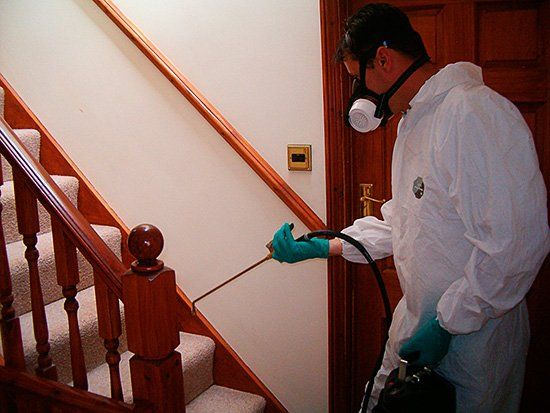
Fleas & Ticks
Fleas are the most prevalent parasite found on fur-bearing animals, such as dogs and cats. There are an estimated 2,000 species of fleas worldwide, and more than 300 types are found in the United States.
Although small in size, ticks can cause big problems by spreading dangerous diseases like Lyme disease and Rocky Mountain spotted fever. So, before heading outdoors this summer, check out the following little-known facts about ticks to learn more about these biting buggers.
Ticks are not insects.
It’s true. Ticks are not insects, although they are often mistaken for them. Ticks are actually classified as arachnids, or relatives of spiders, scorpions and mites. If you look closely at a tick when identifying it, it kind of resembles a spider with its four pairs of legs and lack of antennae.
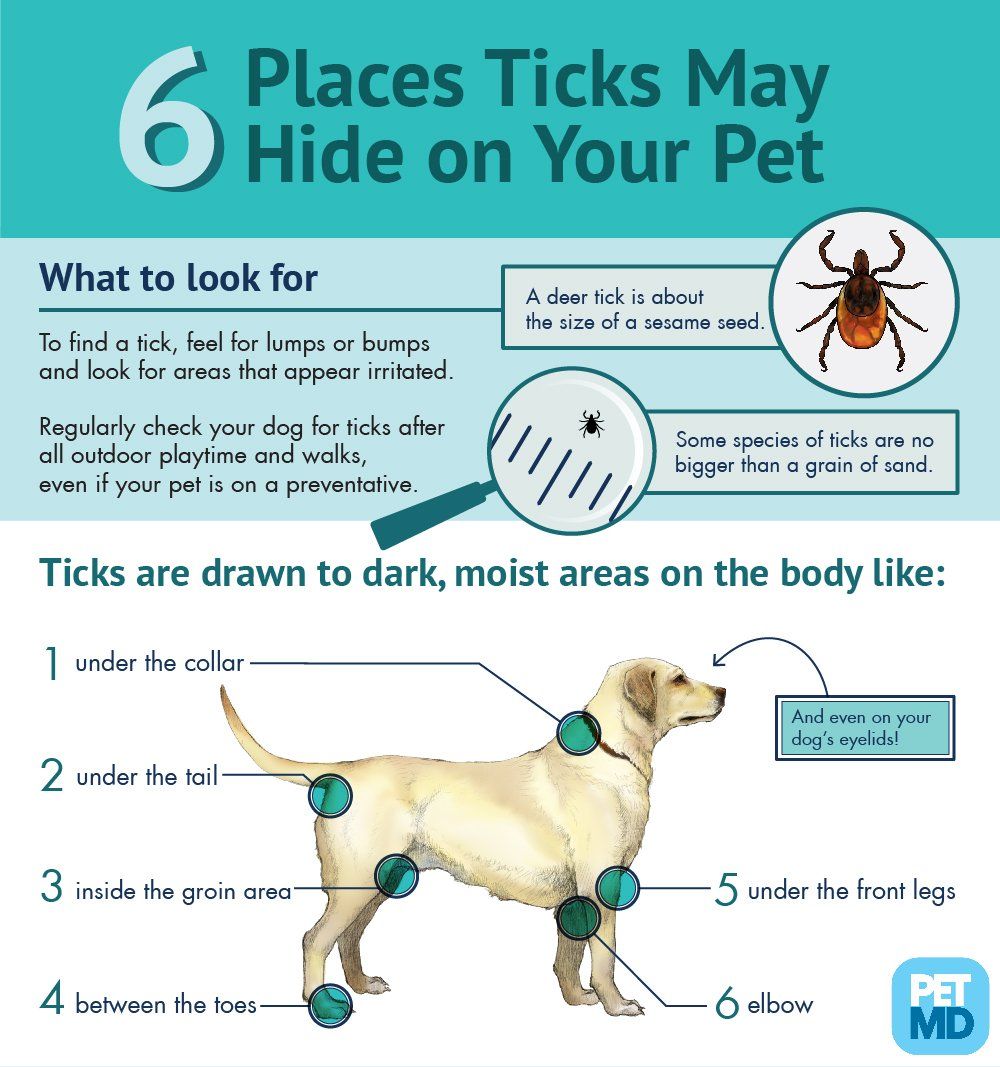
What does a flea look like?
Fleas are small, wingless, flat insects with three pairs of legs. Adult fleas are about 1/8 of an inch long (1 to 3 mm). They are dark reddish-brown in color and have biting mouth-parts. They can be very hard to spot because they move so fast along the animal's body. Flea-combs and wetting an animal's hair can help you grasp them for a visual inspection.
What do fleas eat?
Fleas feed on any warm-blooded body, including humans. However, they prefer to dine on hairy animals such as dogs, cats, rabbits, rats, mice, opossums, raccoons and skunks.
Where do fleas live?
Once a flea hatches and becomes an adult, it uses its powerful legs to jump onto a host, where it likely remains at all times. While attached, the flea will feed, mate and lay eggs. The eggs often fall off of the host into the yard, bedding, carpeting or blankets.
Are fleas dangerous?
Fleas not only cause discomfort from biting, but they are also vectors of the bubonic plague. While there are few cases reported today, this rare disease wiped out one-third of Europe in the 14th century. Additionally, they can spread the bacterial disease murine typhus, which is transmitted to humans through infected rats. In pets, fleas serve as an intermediate host for tapeworm. The saliva of these biting pests is known to cause serious flea allergy dermatitis in dogs and cats.
How can I prevent a flea infestation?
There are a few tips that people should follow to prevent fleas from becoming an itchy nuisance.
Around the House
- Maintain a clean home. Practicing good sanitation is key to avoiding an infestation.
- Vacuum carpets, floors and furniture frequently, and wash ben linens regularly, to remove any existing fleas and help prevent the laying of eggs.
- Since fleas can transport themselves on rodents, it's important to eliminate any rodent harborage points by keeping the lawn properly landscaped. This includes mowing the lawn on a regular basis, replacing loose mortar and weather stripping around the basement foundation and windows, and removing all moisture sites around the property.
Pet Care
- Check pets' coats thoroughly for fleas, especially after spending time outdoors. Be aware of excessive scratching and licking.
- Bathe pets after walks or playtime with other animals.
- Wash pet bedding, collars and plush toys frequently.
- Speak to a veterinarian about flea prevention treatments.
Serving Sacramento, CA and Surrounding Areas
Sacramento
Pleasant Grove
Knights Landing
Yolo
Dufour
Sugarfield
Elverta
Antelope
Rio Linda
Citrus Heights
Monument Hills
Woodland
Fair Oaks
Gold River
Carmichael
Rancho Cordova
Swingle
Davis
Lemon Hill
Riverview
Florin
Arcade
Freeport
Dixon
Vineyard
